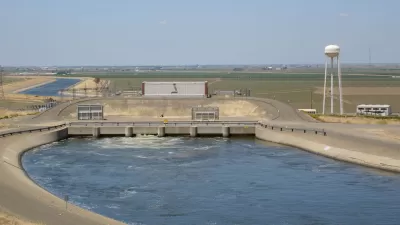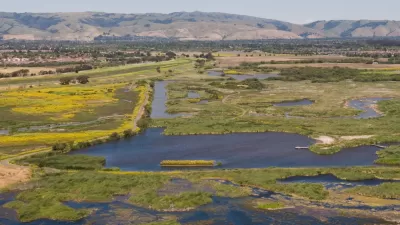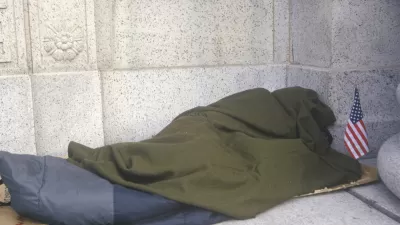The legislature placed a $4.1 billion water bond on the ballot in June while a privately funded initiative hopes to qualify an $8.9 billion water bond for the November ballot. The state measure would also fund parks and trails.

"California has a long history of using bonds to finance major water projects," reports Kurtis Alexander for the San Francisco Chronicle on Nov. 24. "More than a dozen have been approved since the 1970s."
In fact, Alexander notes that there is $2.7 billion remaining from a $7 billion, 2014 bond measure, Proposition 1, which agribusiness hopes will be used for new reservoirs. Neither of the two bond measures next year would fund new dams.
"The Legislature’s $4.1 billion [general obligation] bond measure on the June ballot was forged as a compromise among several interest groups," writes Alexander. The measure was authorized in October after Gov. Jerry Brown signed SB 5: "California Drought, Water, Parks, Climate, Coastal Protection, and Outdoor Access For All Act of 2018," authored by Senate President Pro Tem Kevin de León (D-Los Angeles).
Its water-related components lean away from traditional infrastructure projects such as new dams, and toward funding for recycling, construction of flood-control levees and cleanup of polluted waterways.
Close to half the bond money, however, would have little or nothing to do with water projects. Some would go to park acquisition and maintenance, much of it in Southern California. Money would be allocated for trail construction and land conservation in the Bay Area. Low-income communities would be given priority for the funding.
"The other bond measure is being headed by Jerry Meral, a former deputy director of the California Department of Water Resources and a longtime water-project advocate," adds Alexander.
Meral supports the Legislature’s bond but says it wouldn’t go far enough. He is leading a signature drive to qualify an $8.9 billion bond for the November ballot, and appears to have the financial support, largely from farmers, to get it there.
Like the Legislature’s measure, Meral’s proposed bond would support recycling, groundwater and clean-up programs. But it would also pay for traditional water projects such as improved canals for farm irrigation in the Central Valley....[and] include $200 million for Oroville Dam repairs and millions more for other reservoir upgrades.
No opposition is sited for the state measure, unlike the private initiative. "Some worry about the high price, while the Sierra Club calls it a 'pay-for-play' deal that will serve big growers and other wealthy water users," writes Alexander. However, it does have support of urban water suppliers and wildlife group.
Backgrouind information on the private initiative can be found in this August Planning Report interview of Jerry Meral and Brian Jordan, vice president of civil engineering firm Tetra Tech. Meral refers to the potential measure as the "Joe Caves’ initiative" who is with the Conservation Strategy Group.
FULL STORY: Multibillion-dollar water measures heading to state ballot

Planetizen Federal Action Tracker
A weekly monitor of how Trump’s orders and actions are impacting planners and planning in America.

Maui's Vacation Rental Debate Turns Ugly
Verbal attacks, misinformation campaigns and fistfights plague a high-stakes debate to convert thousands of vacation rentals into long-term housing.

Restaurant Patios Were a Pandemic Win — Why Were They so Hard to Keep?
Social distancing requirements and changes in travel patterns prompted cities to pilot new uses for street and sidewalk space. Then it got complicated.

In California Battle of Housing vs. Environment, Housing Just Won
A new state law significantly limits the power of CEQA, an environmental review law that served as a powerful tool for blocking new development.

Boulder Eliminates Parking Minimums Citywide
Officials estimate the cost of building a single underground parking space at up to $100,000.

Orange County, Florida Adopts Largest US “Sprawl Repair” Code
The ‘Orange Code’ seeks to rectify decades of sprawl-inducing, car-oriented development.
Urban Design for Planners 1: Software Tools
This six-course series explores essential urban design concepts using open source software and equips planners with the tools they need to participate fully in the urban design process.
Planning for Universal Design
Learn the tools for implementing Universal Design in planning regulations.
Heyer Gruel & Associates PA
JM Goldson LLC
Custer County Colorado
City of Camden Redevelopment Agency
City of Astoria
Transportation Research & Education Center (TREC) at Portland State University
Jefferson Parish Government
Camden Redevelopment Agency
City of Claremont





























